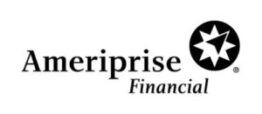

Retail investors lucky enough to have never had trouble with stockbrokers, or the broker-dealer firms who employ them, may not be aware that the standard of conduct for these investment professionals is below that of a fiduciary.
A fiduciary is obligated to act in the best interest of the person or entity to which the fiduciary duty is owed. This includes full disclosure of possible conflicts of interest.
Thanks to the Advisers Act of 1940, investment advisers have long had to adhere to the fiduciary duties of loyalty and care, but stockbrokers and broker-dealers have been held to the lower standard of suitability, which only requires recommendations that are consistent with the interests of customers.
This lower standard may have made it harder to hold stockbrokers and their firms accountable for investment fraud, misappropriation, market manipulation or outright broker theft.
A Uniform Fiduciary Standard
Now the creaky machinery of regulatory reform has begun to stir. The investment industry expects the Securities and Exchange Commission, or SEC, to promulgate news rules sometime in 2012 on a uniform fiduciary standard for both investment advisers and broker-dealers.
Authority for the new rule is found in Section 913 of the Dodd Frank Wall Street Reform and Consumer Protection Act, which became law in July 2010 in reaction to the financial debacle of late 2008.
The first step was the Study on Investment Advisers and Broker-Dealers performed by the SEC and the Commodities Futures Trading Commission, issued in January of this year.
The study recommends a standard of conduct for all brokers, dealers, and investment advisers. For those who provide personalized investment advice to retail customers, the study said, the “recommended standard shall be to act in the best interest of the customer without regard to the financial or other interest of the broker, dealer, or investment adviser providing the advice.”
A uniform standard makes sense given the overlap that has occurred between these professionals over the years.
As of September 2010, over 11,000 investment advisers were registered with the SEC. They managed more than $38 trillion for more than 14 million clients, the study said. State-registered investment advisers numbered about 15,000.
About five percent of the investment advisers registered with the SEC are also registered as broker-dealers, and 22 percent are related to a broker-dealer in some way, the study said.
In addition, nearly 88 percent of investment adviser representatives are also registered representatives of broker-dealer firms, according to the study. Over half the assets managed by registered investment advisers were held in the accounts of individual clients.
The broker-dealers firms are overseen by both the SEC and the Financial Industry Regulatory Authority, or FINRA, a self-regulatory organization. The two entities oversee about 5,100 broker-dealers that held more than 109 million retail and institutional accounts by the end of 2009, the study said.
About 18 percent of these FINRA-registered broker-dealers also are registered as investment advisers with the SEC or a state, and most receive transaction-based compensation.
The standard of conduct for the two overlapping groups has been governed by two different sets of laws. As noted, under the Advisers Act, investment advisers are fiduciaries to their clients, and their regulation is generally based on principles, the study said.
Broker-dealers have been governed through the SEC’s antifraud authority as found in the Securities Act of 1933 and the Securities Exchange Act of 1934, as well as the rules the SEC promulgated to enforce these laws. FINRA rules also govern broker-dealers based on the principles found in these laws, including fairness and transparency, the study said.
While the different regulatory regimes may have made sense historically, these days, investment advisers and broker-dealers are engaging in the same or substantially similar activity.
Aside from recommending the uniform fiduciary standard itself, the study made a series of implementation recommendations. It noted that commission-based compensation for the sale of securities does not, in and of itself, violate the standard of conduct to be applied to broker-dealers.
The study recommended that the SEC issue guidance addressing the duties of loyalty and care, the components of the uniform fiduciary standard.
Examples of common material conflicts of interest would also be useful to help broker-dealers understand the standard and to consistent interpretations by stockbroker and advisers, the study said. Case law and records of enforcement actions will continue to apply.
The duty of loyalty will obligate both advisers and broker-dealers to eliminate or disclose conflicts of interest, the study said. Moreover, the SEC should consider a total ban on certain types of conflicts and should offer simple and clear disclosure rules so retail investors can easily identify these conflicts.
Disclosure could come through a form filled out at the time the fiduciary relationship is established, as well as additional disclosures if the type of transaction is flagged by the SEC as requiring additional scrutiny in terms of consumer protection.
The study also recommended a form disclosure document filled with information on a broker-dealer’s services, fees, conflicts, and whether its advice and related duties are limited in time or are ongoing.
Enforcement of the duty of care could be effected through obligations such a as requiring a broker-dealer or adviser to explain the basis they have for a given investment recommendation.
Finally, the promulgation of a uniform fiduciary standard needs to be accompanied by investor education and outreach, the study said. Once the standard is place, investors should be better protected and more aware of risk, the study said. The standard should be flexible enough to accommodate all kinds of business models and fee structures to preserve investor choice.
Oversight is also key, the study noted. Section 913 of Dodd Frank includes a provision requiring the SEC to enforce violations of the uniform fiduciary standard consistently against investment advisers and broker-dealers.
FINRA has signaled that it is on board with a uniform fiduciary standard. For example, in testimony before the U.S. House of Representatives Subcommittee on Capital Markets in September, Rick Ketchum, the chairman and CEO of FINRA, said the organization believes the standard of care for both advisers and brokers should be a fiduciary standard.
Ketchum said that a lack of a uniform standard has resulted in both FINRA and the SEC being forced to respond piecemeal, from violation to violation, rather than detecting and addressing problems broadly.
The uniform fiduciary standard would establish a benchmark for both the regulator and the regulated, Ketchum said. It would ensure that everyone knows their exact obligations, and that the first question they must ask is not whether the investment is merely suitable, but whether it is in the best interests of the customer.
According to Ketchum’s testimony, FINRA has already sent comments to the SEC asking for rules that requiring disclosure — in plain English — of permitted conflicts at the time an account is opened, as well as at the point of sale when appropriate.
Too often, Ketchum said, disclosures are filled with jargon and other obscure language that does nothing to educate investors, and that they often ignore.
The promulgation of the uniform fiduciary standard looks like a chance to improve the communication aspect of the retail investing as well as a better means to hold broker-dealers accountable.
Guiliano Law Group
The practice of Nicholas J. Guiliano, Esq., and The Guiliano Law Group, P.C., is limited to the representation of investors in claims for fraud in connection with the sale of securities, the sale or recommendation of excessively risky or unsuitable securities, breach of fiduciary duty, and the failure to supervise. We accept representation on a contingent fee basis, meaning there is no cost to unless we make a recovery for you, and there is never any charge for a consultation or an evaluation of your claim. For more information contact us at (877) SEC-ATTY.








